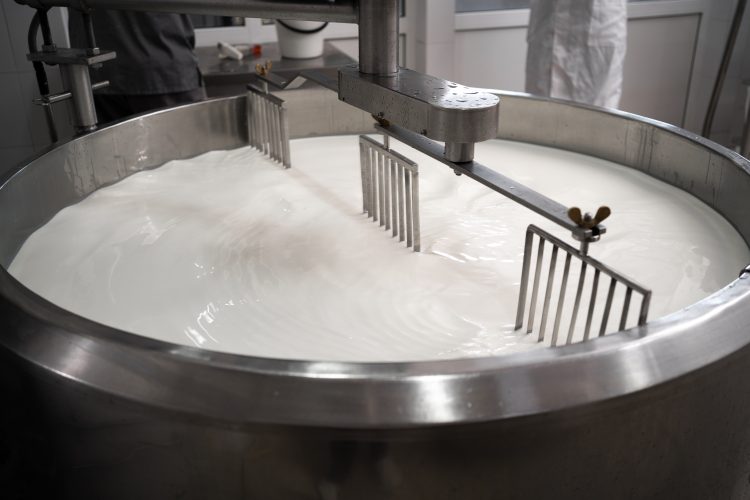Researchers confirm pasteurisation inactivates H5N1 virus in milk
- Like
- Digg
- Del
- Tumblr
- VKontakte
- Buffer
- Love This
- Odnoklassniki
- Meneame
- Blogger
- Amazon
- Yahoo Mail
- Gmail
- AOL
- Newsvine
- HackerNews
- Evernote
- MySpace
- Mail.ru
- Viadeo
- Line
- Comments
- Yummly
- SMS
- Viber
- Telegram
- Subscribe
- Skype
- Facebook Messenger
- Kakao
- LiveJournal
- Yammer
- Edgar
- Fintel
- Mix
- Instapaper
- Copy Link
Posted: 3 July 2024 | Grace Galler | No comments yet
New research confirms pasteurisation effectively inactivates the highly infectious H5N1 bird flu virus in milk. Find out more here…


In a significant development for public health and food safety, new research has confirmed that pasteurisation effectively inactivates the highly infectious H5N1 bird flu virus in milk.
This finding comes after the virus was detected in dairy cattle and raw milk for the first time earlier this year in Texas where dairy cows were found to be infected with highly pathogenic avian flu, or H5N1 bird flu, in the first known case of the virus spreading to cattle.
Since the outbreak in Texas in March 2024, H5N1 has been found in about 200 animals—and three people—across 12 states, according to the Centers for Disease Control and Prevention. The virus was quickly detected in raw milk, which caused researchers to investigate whether dairy products pose a risk to consumers.
The study was published in the Journal of Virology and provides reassurance that current milk processing methods are sufficient to protect consumers from this dangerous pathogen.
In order to decipher the scope of the virus, Erica Spackman, Ph.D., a virologist at the US Department of Agriculture (USDA) in Athens, Georgia worked with other researchers to test nearly 300 milk products from 132 processors.
Results from the study highlighted there were no traces of the infectious virus in the samples. Spackman herself stated: “Milk is safe. Just like bacterial pathogens that occur in milk, or other viruses that could occur in milk, the sanitation processes that are in place are getting rid of the pathogens.”
Going further, Spackman noted that the milk processing pipeline includes multiple layers of protection, and highlighted that microbiological surveillance of milk products can identify pathogens, and milk from cows with mastitis or other disease conditions does not enter the food supply.
“Finally, heating during the pasteurisation process can destroy H5N1 and other, more common bacterial pathogens,” added Spackman.
Bird flu mainly infects and spreads among migratory birds and can be transmitted to domestic poultry, but it has also been found in other animals. Recently, these have included cats, dogs, and juvenile goats, as well as a polar bear in Alaska and elephant and fur seals in the Antarctic. However, the detection of H5N1 on dairy farms in March was unexpected as the virus had never before been found in dairy cattle.
Following the discovery, diagnostic testing unearthed that an infectious form of the virus was present in raw milk, suggesting the virus passes from cow to milk. That finding led the US Food and Drug Administration (FDA) and the USDA to investigate whether pasteurisation effectively eliminated risks posed to consumers.
From 18 April until 22 April 2024, the researchers used real-time PCR to analyse 297 samples of pasteurised retail milk products, including 23 types of products, collected from 17 states.
“We did a viability assay to detect live virus and went as sensitive as we could to get even the least little bit of virus, but couldn’t detect anything,” continued Spackman. Then, using PCR, the researchers were able to identify viral genetic material in 20 percent of samples.
Commenting on the findings, Spackman explained that “it looks like the virus is just totally inactivated”.
To conclude, the lead researcher stated that she believes the latest findings “give us reassurance that what we have been doing— pasteurisation—is keeping us safe from what we don’t know about.”
Related topics
Related organisations
Centers for Disease Control and Prevention, Journal of Virology, US Department of Agriculture (USDA)







